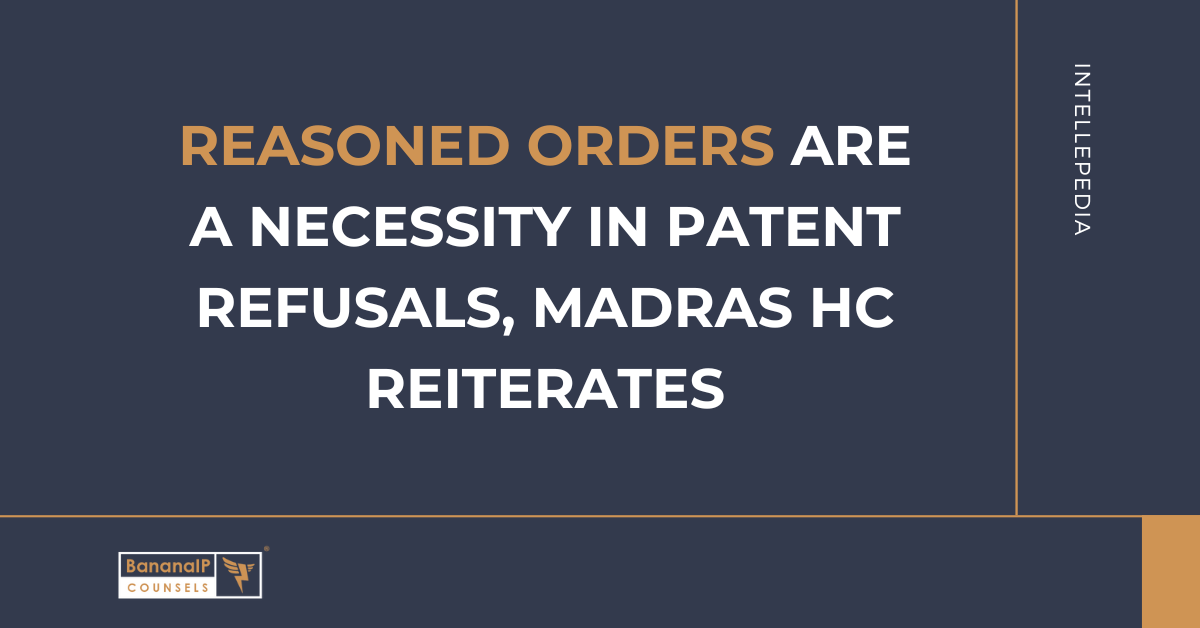The Delhi High Court has upheld the refusal of a patent application for a system that locates users on peer-to-peer networks. The Court ruled that the invention was a computer program per se, excluded from patentability under Section 3(k) of the Patents Act.
Read more about Patent Application for System to Locate Users on P2P Networks Refused under Section 3(k)Tag: Inventive Step
Coca-Cola Patent Appeal: Delhi HC Emphasizes Need for Reasoned Inventive Step Analysis
Delhi HC overturned Coca-Cola’s patent refusal, stressing the need for detailed inventive step analysis in patent decisions.
Read more about Coca-Cola Patent Appeal: Delhi HC Emphasizes Need for Reasoned Inventive Step AnalysisZiegler-Natta Catalyst Patent Rejection Upheld for Lack of Inventive Step
The Delhi High Court upheld the refusal of Lummus Novolen’s patent for a Ziegler-Natta catalyst, citing lack of inventive step and similarity to prior art. Read the key observations and legal reasoning.
Read more about Ziegler-Natta Catalyst Patent Rejection Upheld for Lack of Inventive StepAnti-Cancer Patent Refusal Set Aside for Not Identifying ‘Known Substance’
In a recent ruling, the Delhi High Court overturned the rejection of an anti-cancer patent filed by Taiho Pharmaceutical. The Court highlighted that objections under Section 3(d) must explicitly state the “known substance” being referenced and directed a fresh hearing for proper assessment.
Read more about Anti-Cancer Patent Refusal Set Aside for Not Identifying ‘Known Substance’Not Just a Mix: Court Finds Merit in UPL’s Fungicidal Formulation
The Calcutta High Court set aside the rejection of a patent application filed by UPL Ltd., involving innovative fungicidal combinations. The Court found that the rejection order issued by the Controller lacked detailed reasoning and had procedural deficiencies, particularly concerning inventive step and treatment of experimental data.
Read more about Not Just a Mix: Court Finds Merit in UPL’s Fungicidal FormulationPatent on Carbon Capture Process freed from IPO refusal
The Madras High Court has overturned the rejection of a patent on a carbon capture process, citing the Patent Office’s failure to adequately justify its decision and its reliance on new, unaddressed grounds. The Court remanded the case for a fresh hearing with a focus on technical and economic evaluations.
Read more about Patent on Carbon Capture Process freed from IPO refusalFrom Algorithms To AI: Patentability Under The 2025 CRI Draft Guidelines
 Featured image for article: From Algorithms To AI: Patentability Under The 2025 CRI Draft Guidelines
Featured image for article: From Algorithms To AI: Patentability Under The 2025 CRI Draft Guidelines
The 2025 Draft CRI Guidelines issued by the Indian Patent Office refine the criteria for patentability of Computer Related Inventions (CRIs), emphasizing technical effect, inventive step, sufficiency of disclosure, and proper claim drafting for AI, blockchain, and emerging technologies.
Read more about From Algorithms To AI: Patentability Under The 2025 CRI Draft GuidelinesReasoned orders are a necessity in patent refusals, Madras HC reiterates
 Featured image for article: Reasoned orders are a necessity in patent refusals, Madras HC reiterates
Featured image for article: Reasoned orders are a necessity in patent refusals, Madras HC reiterates
The Madras High Court overturned a patent refusal in Signal Pharmaceuticals vs. Deputy Controller of Patents, citing a lack of reasoning in the rejection order. The Court observed that the Patent Office failed to address the applicant’s arguments, disregarded amended claims, and provided no justification for the refusal under Section 2(1)(ja) and Section 3(d) of the Patents Act. The case was remanded for reconsideration, reinforcing the necessity of well-reasoned patent orders.
Read more about Reasoned orders are a necessity in patent refusals, Madras HC reiteratesMadras High Court Affirms Rejection of AI-Integrated Persona Patent
The Madras High Court dismissed an appeal challenging the rejection of a patent application for AI-integrated persona augmentation. The Court ruled that the invention lacked sufficient technical detail, inventive step, and patent-eligible subject matter under the Patents Act. It upheld the Controller’s decision, emphasizing the absence of tangible technical effects and clear disclosure requirements.
Read more about Madras High Court Affirms Rejection of AI-Integrated Persona PatentMadras High Court Upholds Patent Validity in Embio Limited vs. Malladi Drugs & Pharmaceuticals
The Madras High Court affirmed the validity of Malladi Drugs’ patent for chiral beta-amino alcohols, highlighting the invention’s novelty and inventive step. The judgment clarifies key principles on patent revocation and the definition of a “person interested” under Indian patent law.
Read more about Madras High Court Upholds Patent Validity in Embio Limited vs. Malladi Drugs & Pharmaceuticals





